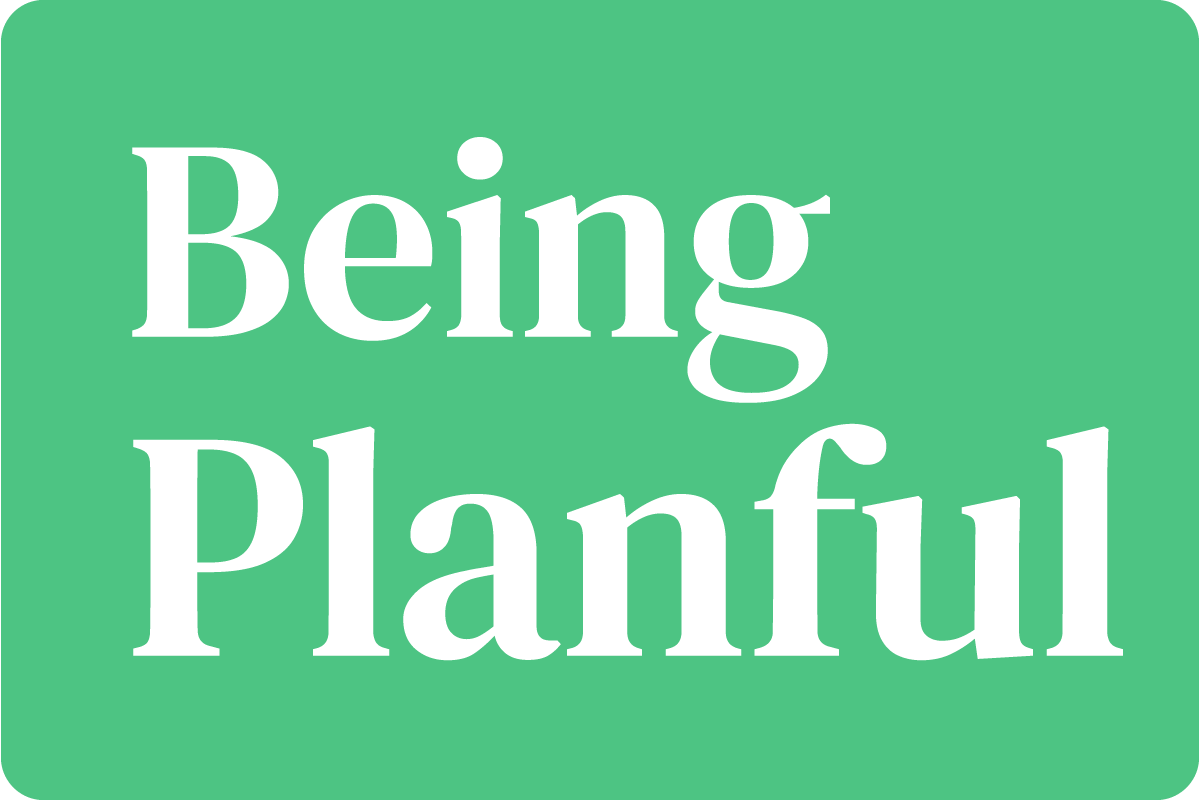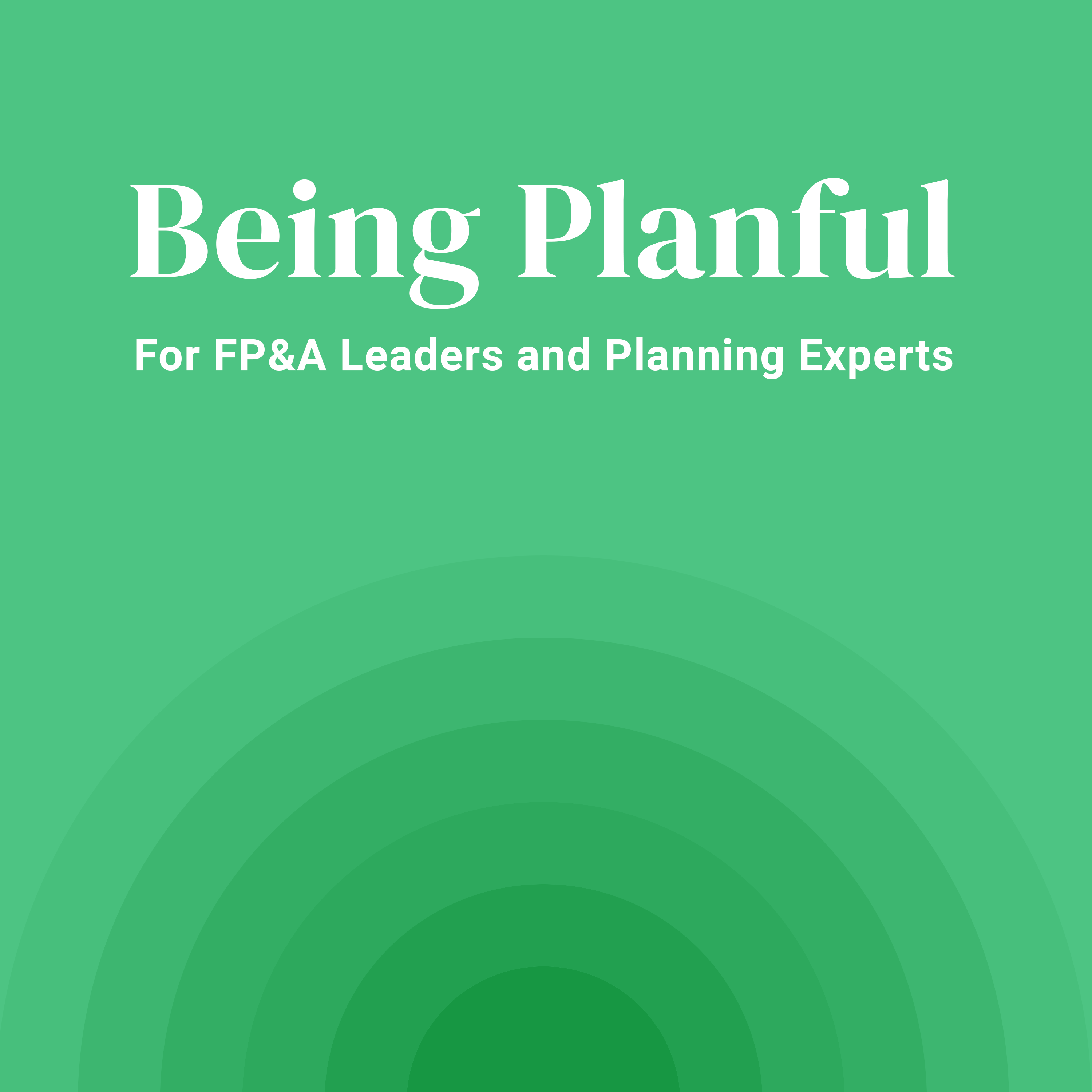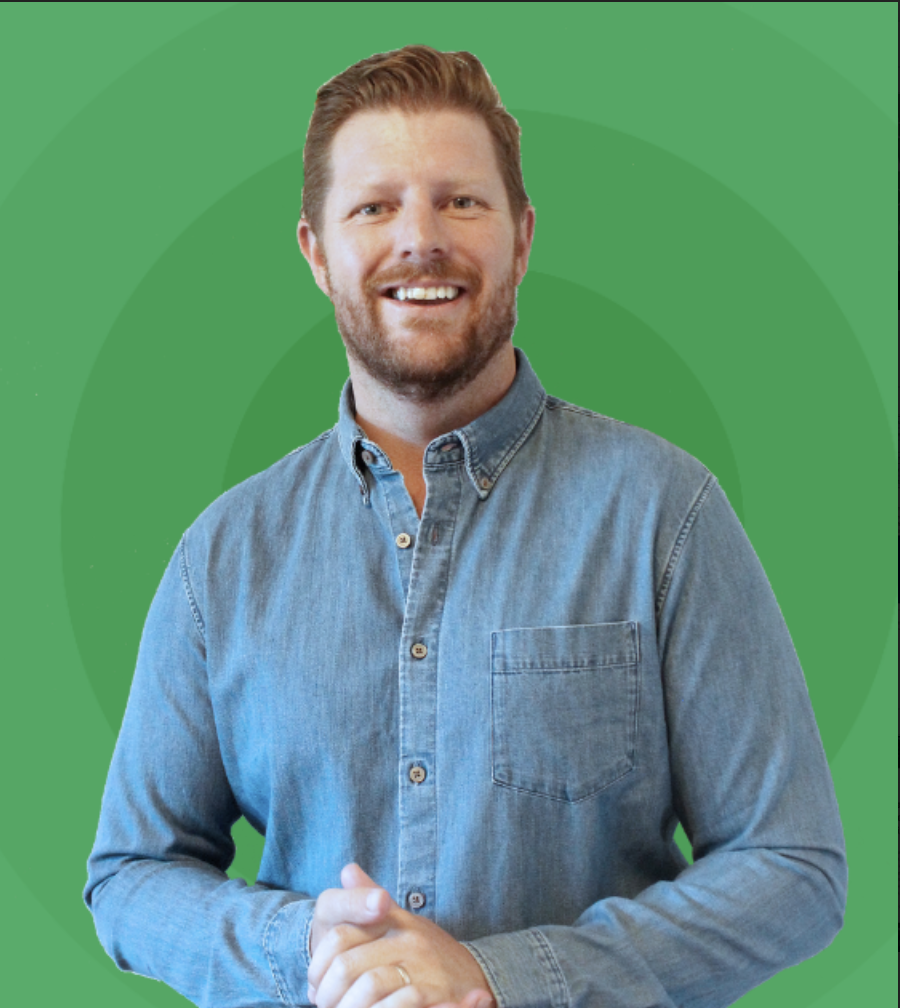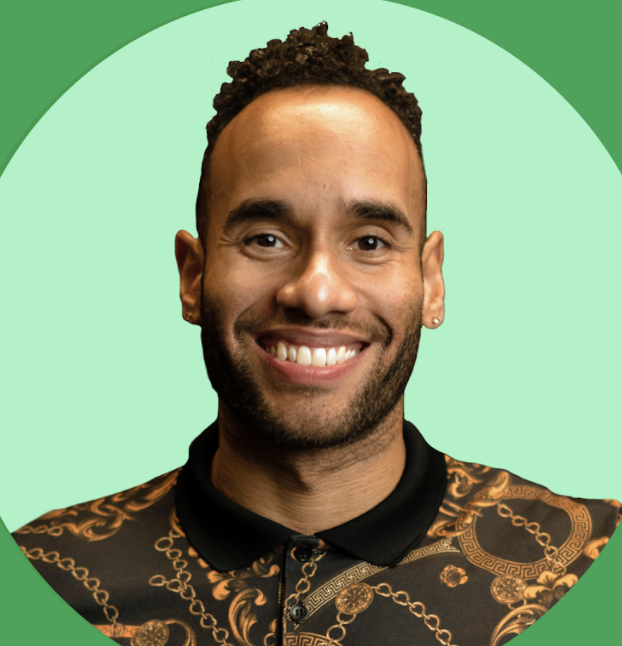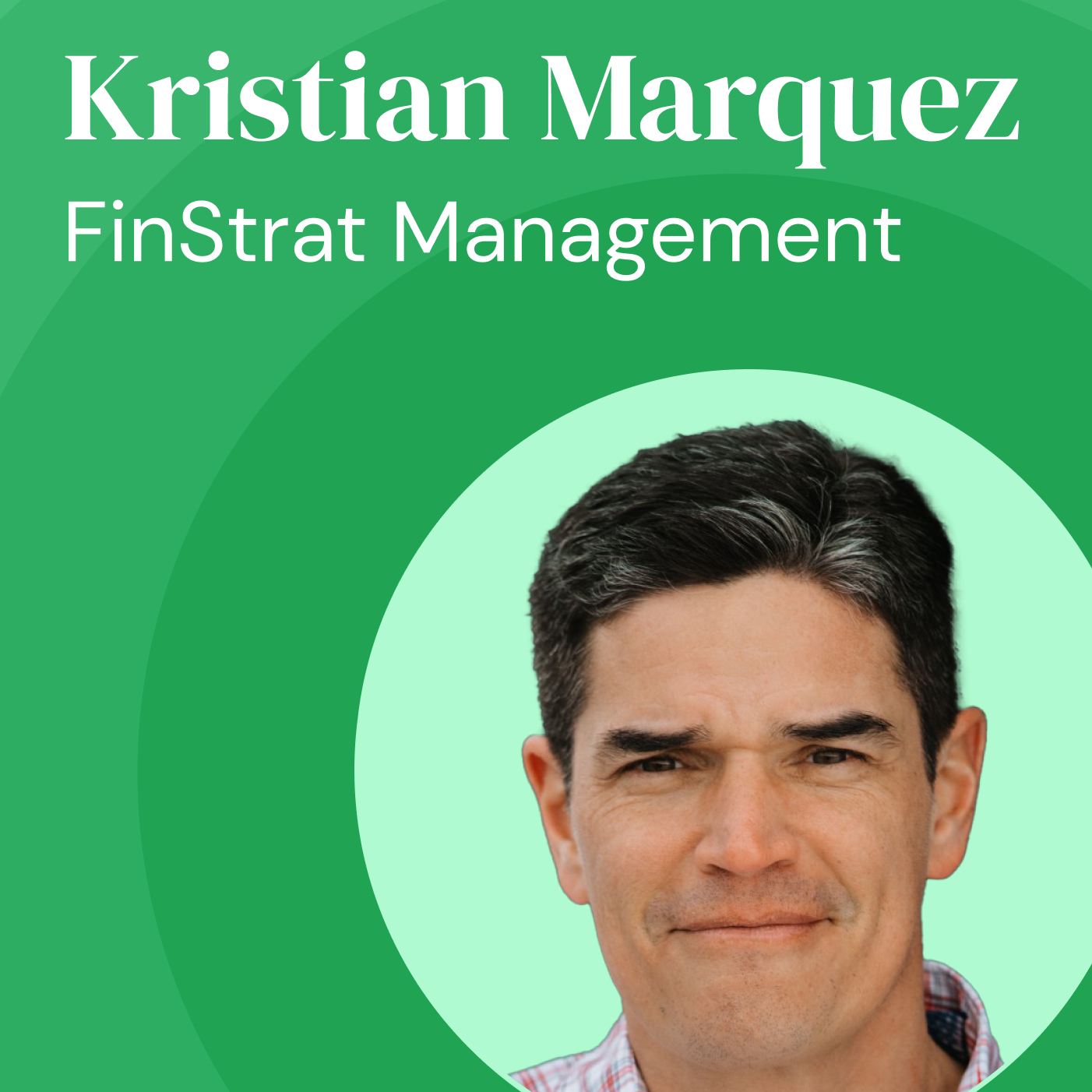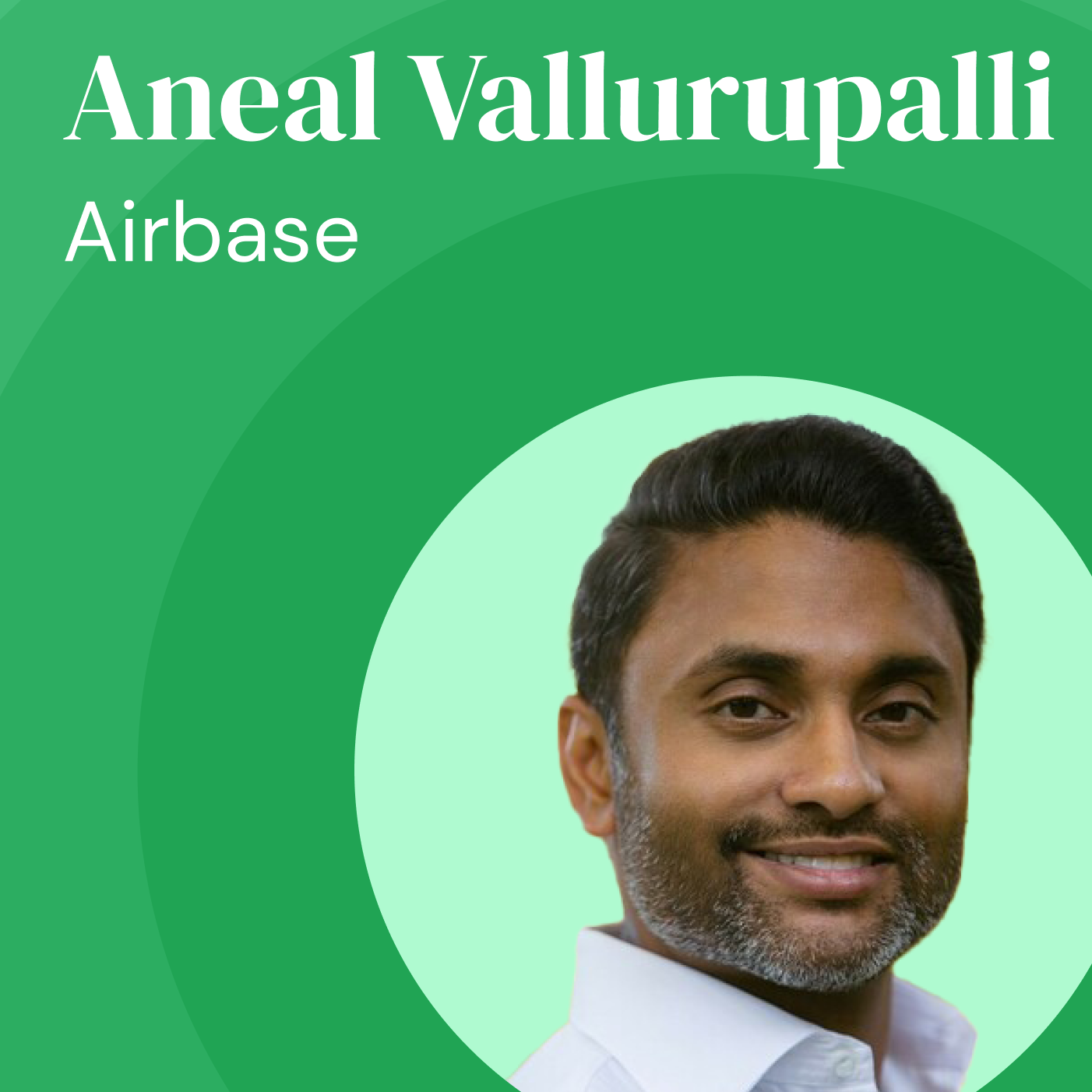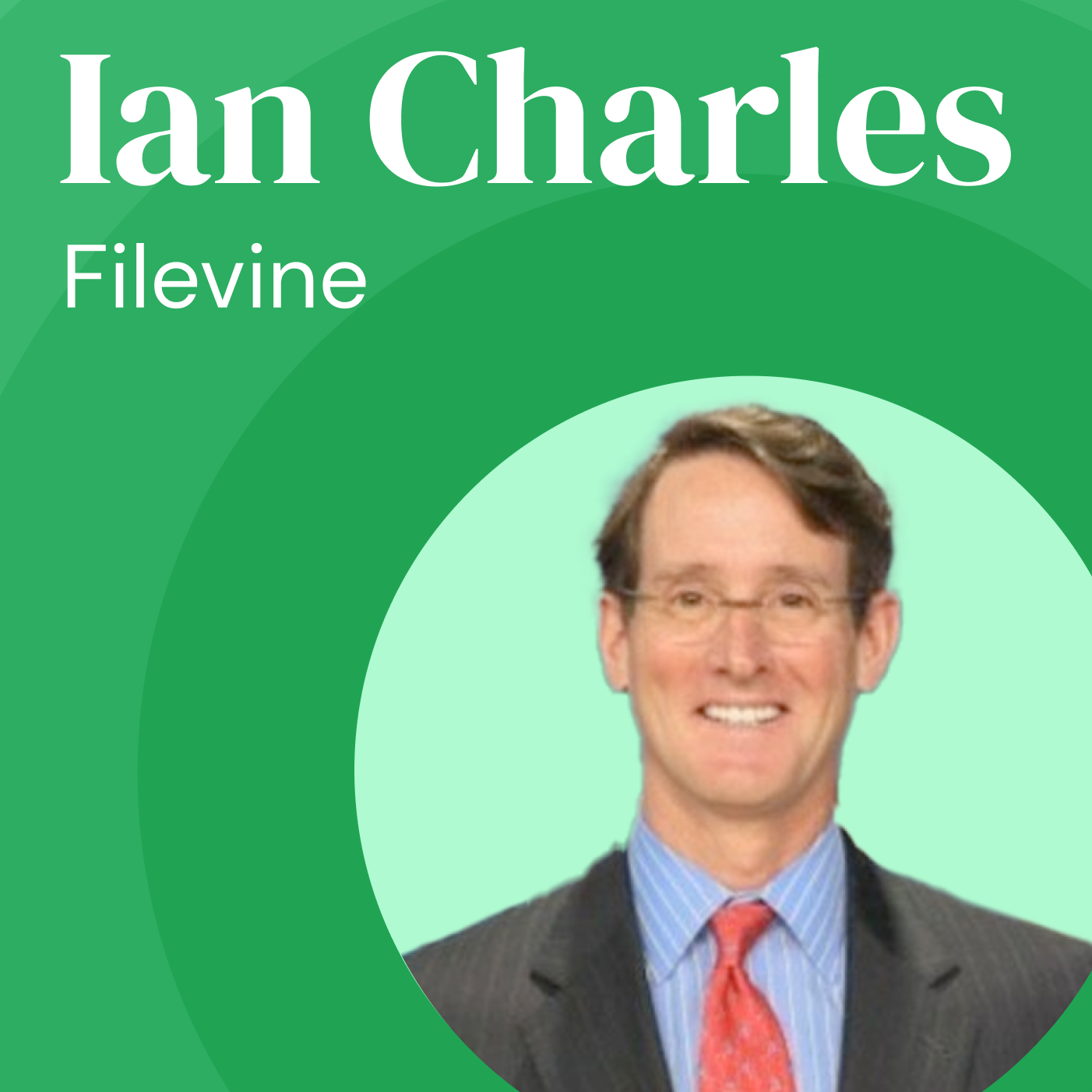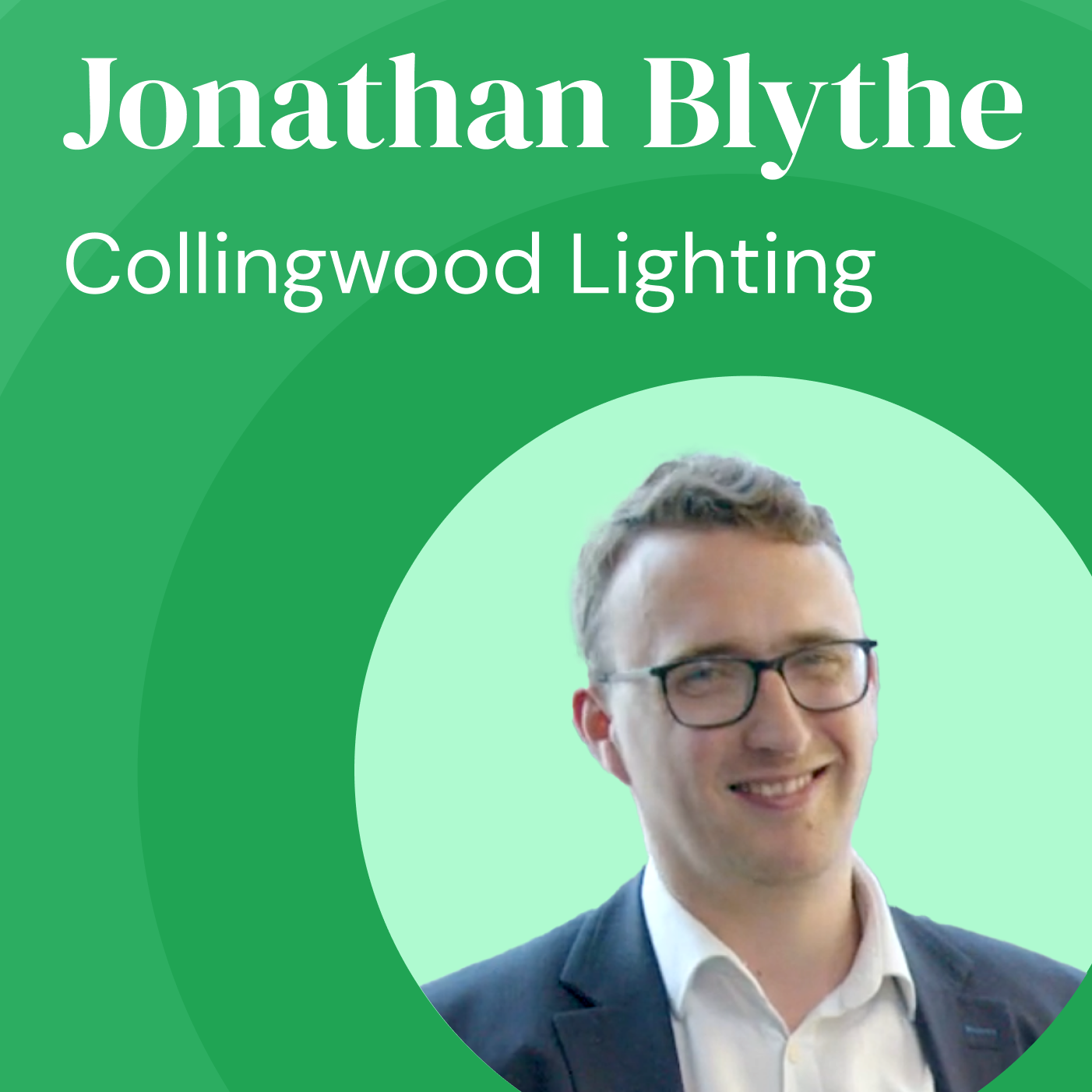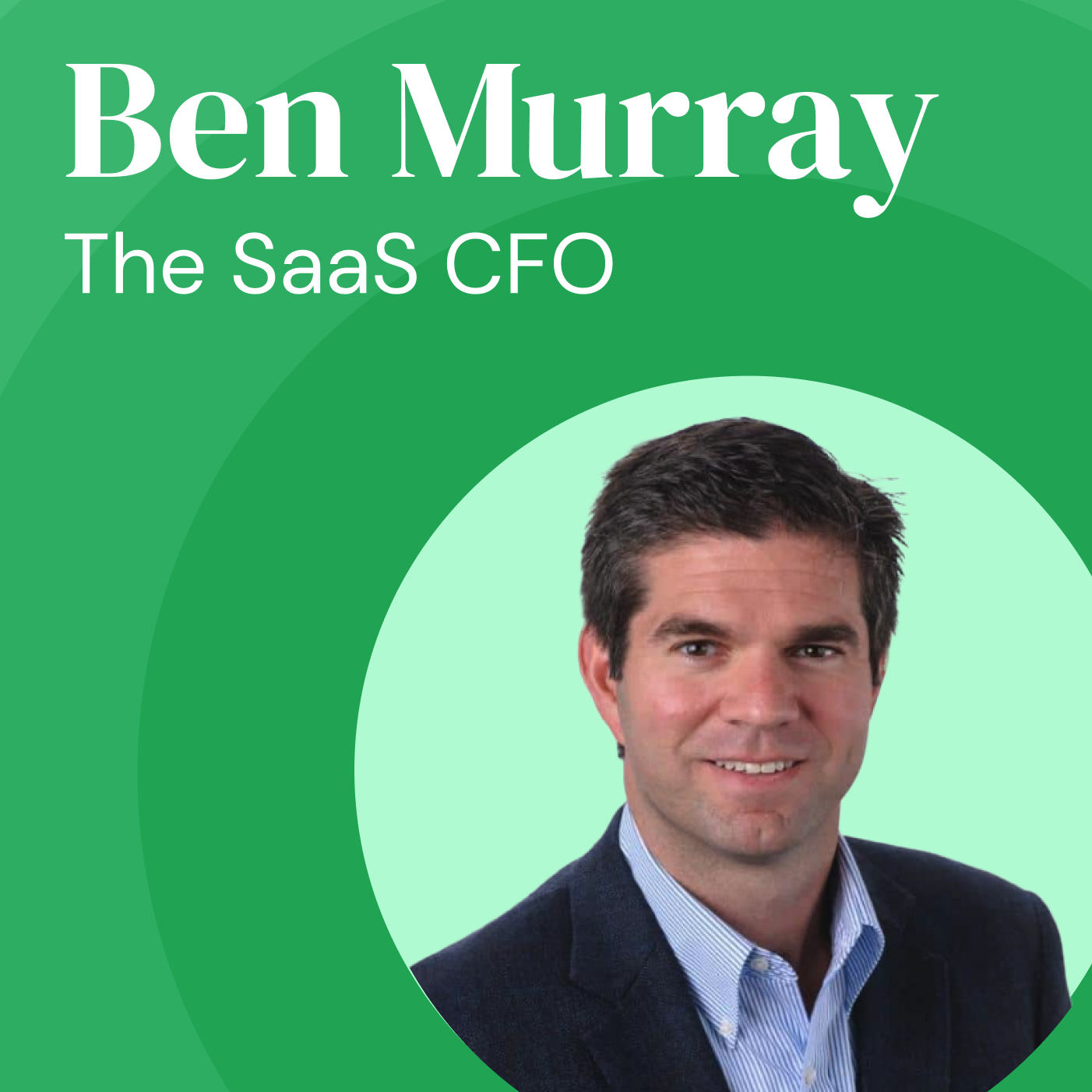Navigating Career Change | FP&A Fridays
- 0.5
- 1
- 1.25
- 1.5
- 1.75
- 2
Rowan Tonkin: Hi, I'm your host, Rowan Tonkin, and welcome to Being Planful, the show for FP& A leaders and planning experts. Hi, everyone, FP& A Fridays. I'm back with Chris Ortega and Chris, we've got a new title, CEO of Fresh FP& A welcome back.
Chris Ortega: Yeah. There's been a lot of changes and I'm super excited and yeah, it's good to be back. Good to talk to everybody. It's Friday, man. The weekend is here. It's March. It's a lot of good things going on right now, man.
Rowan Tonkin: Absolutely. I think summer is coming. I know we're going to bounce forward this weekend, get some time back in our days. So let's talk about. You've obviously had a bit of career change and that's today's topic is career changes. I've certainly gone through a few myself, different regions, different roles, different departments, and there's lots of ways to think about career change. So why don't we start with you. How are you thinking about this shift that you've made recently and also career changes in general?
Chris Ortega: Yeah. So obviously career change and professional development and the classic quote of the grass is greener on the other side is definitely a hot topic for a lot of people right now. And I think to me, when I've always thought about career change and this will be my advice, anybody looking for that insight is you don't make the career change out of the just, hey, I'm struggling in this role or I think a lot of times people make too much of a quick jump without giving a position time, right? So to me, I think making sure that you're really thinking about your next opportunity and how it's going to grow and develop you, and how it's going to build on or uncover additional skills, passions, and talents that you didn't know you had. I think the second thing is too, when I look back over my career and look at kind of how I made the shift from public accounting to in accounting and then I made the shift to FP& A, and then I made the shift to leadership and then I made these different pieces of it, you want to be able to like talk through that journey. A lot of times with or right now, people are going to ask you and say Chris, or help me understand what those drivers were, right? And I think the motivations and intentions about what the drivers are and really having a clear, crisp explanation of this is the reason why I was doing those things. Here's where I wanted to develop. Here's where I was trying to challenge myself or here's where I failed and learned from it. I think those are definite pieces around it. And my third piece of advice for anybody that's looking to say, hey man, I'm testing the market out there, do it for the right intentions. Listen, if there's one place that I can really tell you right now, as much as the recruiters and organizations are asking you, you need to be doing the same level of due diligence in thinking through culture, role, grow, support, empowerment. You have to know what those key pillars are for you that you're looking for and that you're going to thrive in and the environment that you want to have. So to me, that would be my advice. And anybody going back and thinking about they're looking to make a career change, they're dabbling, that would be my insights.
Rowan Tonkin: Yeah. A hundred percent. When I think of career change, I think of a few different dimensions. So number one is just a role- based change, right? For you going from accounting to the FP& A side of the house, right. It's not necessarily a career change per se, but it's a shift, it's a development in your career. Other things that you could look at is a company change, right? So role changes. One company changes, another industry changes another. You could go from one industry to another and that's a whole different experience, different environment. And then the fourth is a location change. Maybe going from North America to Europe or Asia Pacific to Europe, you're in a very different working environment, different culture, different ways of doing it. And obviously each of those changes will have different implications, different reasons, different pursuits for why you would want to go and do that. I've been through a few of those. I think actually, no, the only industry, I've never changed industries. But the most important part is what Chris said, which is really focus on your intentions and why, right? Right now we're going through, the Wall Street Journal called it the Great Resignation. I think we're seeing that happen all over where people are reprioritizing, what they want for themselves, their careers, their personal lives. And obviously we're seeing a lot of activity happen in the market where there's so many jobs available and there's a war on talent, which is awesome for talented folks. Recruiters are coming out, everyone, left right and center across all industries. And so per Chris's comment, you've really got to figure out why. What is the purpose of your shift, your change, and how does that adapt to your long term why? What do you want to be, where do you want to go? Chris, talk to me a little bit about your experiences in any of those changes. I know you've had role- based changes, you've had company- based changes, but what do you look for when you are in that mode of I'm ready for change?
Chris Ortega: Yeah. I think it's really, really important because one thing I think is really important for people to highlight is your career is going to go through transitional moments. What do I mean by that? So your career, and some people career may not, right. They love maybe just being an individual contributor and moving from role to role. And just, I really love this niche. I really love this is the five things that I do. I love being an individual contributor. I don't want to go into leadership, which I think is another career change a lot of people make. Probably that fourth factor on there is that shift between individual contributor and leadership is probably one of the most critical and stumbling box I've seen across the board, right? Making that shift and making that catapult into it, right? It's probably like that fourth element around it. But to me, I think you always want to make sure is what is it? Do self inventory, right? Don't make change for the sake of making change because listen, I may be on a wild part with this, but don't make change... Don't go chasing money. That's the worst possible thing you can do. Because at the end of the day, you can have a job that's paying you tremendous amount of money. But if the culture's bad, there's no room of growth. It's not fueling your passion. You're not making an impact. You're not giving yourself these core things that are important to you that light your fire and make you motivated, I've seen that mistake time and time and time and time again from people is they think they want this change and they hear their friend got this 40% promotion, right? And they're like, man, I deserve to get 40 more percent more money in terms of this, right. So then they go chase the dollar amounts, right? No, no, no. Have your core principles. Don't make that fast mistake of chasing money. Another frolic mistake, another mistake that people make is they go chase titles, right? I want to be this VP or this CFO, but yeah, you're in it, and you're not really that title. You're doing a lot lower level work. So to me it's about really, really being clear about what transitional moment are you in right now? Like, are you in a moment of I need skill development? Are you in a moment where I want to catapult to manage people and challenge myself there? Really understand, and be honest with yourself. What are those core things that you're looking for in guiding your career and what organization is going to help you guide those, right? Another mistake a lot of people make, they look for the company to give them everything that they need in their career. Listen, you are the master and controller and you are the captain of your career ship. Organizations should amplify that, but you should never look to an organization and say, hey, I'm going to look to this organization and they're going to guide my career. And they're going to put me in the transition and give me the 30, 40% and give me the leadership opportunities. That would be my focus around some of those pitfalls a lot of people make when they make that transition.
Rowan Tonkin: Yeah. A hundred percent. I've seen a few of them. Obviously, they're chasing money and right now in the war on talent, you're going to see that happen, right? What was market value a year ago is different to market value now for a specific role. And to your point about being the master of your own destiny, if that's a thing that you are seeing, because the external market is telling you, don't just leave your current company because of that. Your current company may not have woken up to the fact that the market value has changed, right? They're really busy doing current things. And then secondly, as you think about being that kind of master of your own destiny, make sure that your self assessment is calibrated with a peer and external assessment of where you're at. A lot of people want to go and chase money and chase titles, and that's great, right? I advocate for people to want to grow and want to develop and have those goals and ambitions. And those things are markers along the way of where you're at. But make sure you calibrate that with peers, with other stakeholders, because you may end up in a place where your self calibration isn't right there, and you are only going to end up failing in that next jump. And you didn't set yourself up for success and that can be two, three steps back before you make one step forward, because you didn't make that jump. I've unfortunately seen that with a few folks and it's sad because if they had have stayed in their right levels, not right levels, but if they had have kept developing in their role at that period of time and not jumped, they would've been further in their careers, but they just didn't seek that self... that kind of peer review and peer reflection.
Chris Ortega: Yeah. And just to add on that Rowan from the peer review perspective, right, I think this is another point that I would give advice to people as they're thinking about that, right. A lot of times, and I've seen it, plans are all over LinkedIn like people, the common phrase, right, people don't lead companies, they lead leaders, right. You hear that all the time. It's all on the everywhere, right? My thing, I would look back to the person thinking about, have that conversation with your manager and with leadership. I've seen that too many times where my first question to people is like, hey, have you even talked to them about what you're looking for, professional development or opportunity? They're like, no, I didn't even talk to my existing manager or company about it. If you are a high potential, high performing person, a lot of times people are like, well, have that conversation. Sit down with your manager and I've done it before. I have mentors of mine that used to be my managers, and they like Chris, I've taken the time out. And we had that conversation. And I said," Look, international exposure, having the opportunity to do A, B and C and D, these things are really important to me. I want to sit down and see if we actually have that path to be able to get those things or not get those things, right?" And to me, it's like having that conversation, yeah, it's hard, right? And we ultimately got to the conclusion where say, we both left that conversation and said, it's probably not a fit here. You're not going to be able to get the things that you would need that you're driving for. How can I help you find that, right? And to me, I think people miss out on that. And it is a hard conversation, right? And a lot of people are like, well, Chris, why should I have to tell my employer if they have those things? But again, it's better to. I think when you leave a situation, you want to leave making sure you've done everything possible with that manager, with that team, with that organization to explore the opportunities that you're looking for. Because you can look at that and find it and say, hey, we can't give you all five of these things, but we can give you two of these right now. We can work towards these things. That to me is a missed opportunity that not a lot of people self- reflect on.
Rowan Tonkin: Yeah. You've got to assume positive intent, right? So if you think about most leaders and I'll say most, right, not all. But most companies, most leaders, they love developing people, right? That's actually one of the things like people get into leadership roles is they love helping other people. It's just natural in humans to want to help, right. It's part of who we are. But often they don't know how, or they don't know what path to help in. And so if you then have those conversations with leaders, whether it's your direct leader, peer leaders, other cross- functional leaders in your organization, naturally, they'll figure that out and they'll say, oh wow, this person wants to do this, right. And that's part of the master of your own destiny saying, oh, I would love to go get international experience. You may not know that there's something going on in your organization that may lead to that path. So you've got to ask, you've got to be open. You've got to communicate your intentions, your goals. Because if you don't, then you may be blinded, right, you may have the blinkers on. And people can't open those doors for you and you don't even know those doors are there. So it's really, really important to be, not just the master of your own destiny and just writing down here are all my goals in a little notepad and keeping that to yourself. You have to share it with other people because then when people know, it's their natural behavior to want to help you, especially if you are, to your point, high value high performing employee, people want to keep you growing within their organization. The last thing most businesses want to do is let people go.
Chris Ortega: Yeah, 100%.
Rowan Tonkin: They really help develop people, find the right fit for them. And they'll be open if there isn't that path at the company, generally. I'm generalizing again. Generally, most companies will be open about that because they also just... We live in the real world, right. We know that those things are really important to people and that's how you keep people motivated and keep a hard performing organization going.
Chris Ortega: 100% Rowan, yeah.
Rowan Tonkin: So, I've been through a few career changes. Career changes, it sounds so big when you say it. So I started out my career in Australia. Obviously my accent is from there. I was a support analyst and just the opportunities that I had at that time were to broaden my skillset from being in support. Naturally, that led to being in customer success. And that led to being into presales. And at that time, international opportunities opened themselves up for me. But because I'd expressed to my leaders at the time that, oh yeah, traveling and moving abroad was something that I'd wanted to do, they were able to accelerate that opportunity for me. And I relocated to London, and had some of the best years of my life out there. It was amazing. But only by expressing when I joined that company, hey, I want to travel, is that going to be something that we could do? And they're like, yeah, possibly. I mean, who knows? Next minute, I'm being asked to do those things and it really filled my bucket so to speak, because I got to pursue my career growth, but also pursue some of those personal growth opportunities like travel.
Chris Ortega: Yeah. And I mean, that's the point right there, Rowan. And I've had opportunities in my career where it's gone the other way, right, where I sat down with mentors of mine who are still former managers who are mentors of mine, that you had that tough conversation. And it's just like, hey man, this is where I think my career is going. Here's where I want to see myself developing. How does that fit to the role? And I've been in a situation where we literally arrive at that conclusion. And it's like, Chris, this is probably not going to be that opportunity for you, right. And we looked at it and it was a tremendous, like that part of that relationship was solidified right there. It's like, you can have the hard, tough conversation. And now that person's a huge advocate of knowing like, hey Chris, I see these things. How can I help? I see these things that you're doing. And that's the most important part, right. Is like, you're being intentional about your career, right. You're being intentional about the people that help you amplify, right. I think every, I would say this for my career. There's no way that it was just me by myself, that navigated how I was able to get to like VP of finance and have these kind of awesome opportunities. No way it was just me, right. It's an entire network of people, managers, resources, partners, network of people that I've just forged along the way that I've leveraged. That I've said, hey, I'm looking at it this way. And I have people in my life and my recommendation for everybody is if you have those mentors, create your own board of people that you have in your life. I have my board of people that I go to and say, hey, man, I'm thinking about this thing. I know you're an expert in this, you have this experience. How can you help me bounce ideas? Am I missing something? And that kind of community aspect, in terms of how you approach a career change is so, so valuable from having a nice support system.
Rowan Tonkin: Yeah. I think we've talked about master of your own destiny and you just mentioned there, have a board of advisors, right? So effectively the company is your career, right. It's going to be how you kind of end up with a profit and loss statement at the end of things, right. And you are the CEO of your own career and you need to go and get advisors. You need to have a strategy. You need to have a plan. And obviously there's systems involved in all of that. So that would be the one kind of tip for folks is become the CEO of your own career. And that way, you can figure out where you want to make your investments, where you want to make your long term bets and strategy, and have a good board that can help you get there. I really like that one Chris.
Chris Ortega: Dude. That's awesome, Rowan, connecting it to a business. Yeah. Be the CEO of your life, man.
Rowan Tonkin: Yeah. And I mean, all of our listeners are probably the CFOs of their own life. I'm sure. So just step into that CEO role and think about it that way. It's something that is also, I think, really important. On top of just being that kind of CEO, you have to reflect frequently on where you are and where you're going, especially right now. There's so many moving parts to what's going on. And the pace of change is occurring so quickly that be reflective more frequently than you think you probably need to be. Because the opportunities are there right now. So I'm not saying go jump ship, go do this, but self- reflect more frequently than you have to or you think you should. Because if you're not doing that frequently enough, you're not challenging yourself in your current environment, challenging yourself, is there other opportunities out there? And that way you can then develop at a much faster rate, if that's what you're looking to do.
Chris Ortega: Rowan, that self- reflection is so vital. Because when you're a high potential, high performing person, let's be honest, right, the level of opportunities and things that you're going to have, you're going to have those, right. You're going to have the recruiters hitting you up. You're going to have the LinkedIn, you're going to have people all... You're going to have a lot of avenues that you can explore, right. And to me, it's like, that is also the good thing, but also the bad thing. Because now you're in these avenues, which way should I go, right? And taking that moment, whether it's a week or whether it's bouncing it off of somebody and saying like, okay, I know I've got these different paths that I can go, do a pro and con on them and look at them and say like, what is this going to get? And really take that CFO, that strategic planning, that analysis, that partnership, all the things that we've talked about and apply that same due diligence and framework to how you think about these different paths. Because all of them have opportunity costs. All of them are going to have a ROI, and all of them are going to have a quantitative and qualitative impact on the business. That is you. So I cannot stress enough man. Taking that time, whether it's a weekend and you're taking notepad and you just say, hey, I'm thinking about, I'm going to spend some time, energy and effort and perspective thinking about this avenue and I'm going to spend the same thing. I think right now that is really, really important because people that are high potential, high performing people that have these opportunities that have these avenues, that they can go down, it can be overwhelming, because there's so many different things you can do. But really sharpen your focus and saying, okay, the next 6, 12, 18 months, here's the experiences, here's the skills, here's the environments, here's the things I want to look for that I think are going to give me the maximum ROI, the maximum result and what I want to bring to an organization. So I can't amplify that enough man. Self- reflection and being honest with yourself is so important right now.
Rowan Tonkin: Absolutely. And I know we're going to run out of time here, Chris. So why don't I quickly wrap up? So a few things that we've talked about today. Number one, just start with some intentionality. Be really intentional about what you want with your career, communicate those intentions because unless you can communicate them, no one else knows and they can't actually help you. Do a lot of self- reflection on that, just per your point. And then finally, be the CEO, right? Go get yourself an advisory board, make sure you are in charge. You set the strategy, run your own long term profit and loss statement for your career. And those things really should help you understand some of those big pivots that we talked about out, right. Role- based pivots, company- based pivots, industry or location. So thank you so much for your time today, Chris, really appreciate it and speak to you all on FP& A Fridays again soon.
Chris Ortega: Yeah, that you Rowan.
DESCRIPTION
It's another FP&A Fridays, and this time around Rowan and Chris share valuable advice for finance, accounting and FP&A professionals who are considering or are in the process of making a career shift. Whether it's a role change, a new company, a different industry, or a transition into leadership, Rowan and Chris advise listeners to zero in on the "why" behind the desire for change, and to ensure that it aligns with their long term "whys", too.
